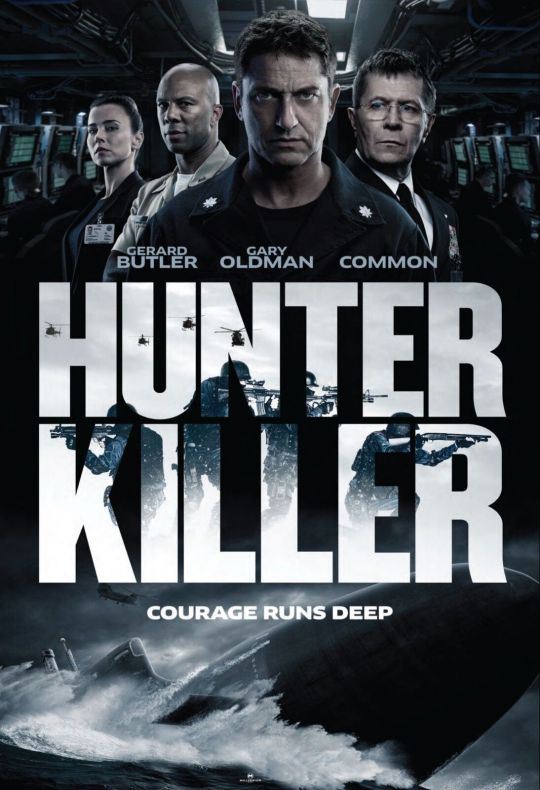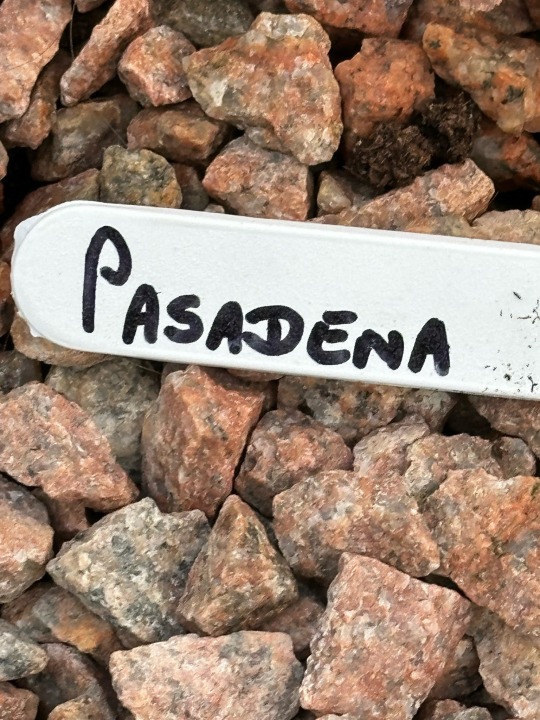#duthie
Explore tagged Tumblr posts
Text









Cycling through Washington State on 35mm film. 2017-2020.
#photography#film photography#35mm#35mm photography#cycling#bikes#bicycles#washington#washington state#ride bikes#color film#35mm color#point and shoot#analog photography#Wenatchee#skagit valley#duthie#issaquah#mtb#seattle#seattle mtb#hardtail mtb#Magnussen Park#gravel#gravel grinding#black and white#black and white photography#yakima#central washington#golden gardens
8 notes
·
View notes
Text







Plant of the Day
Tuesday 18 February 2025
At the David Welch Winter Gardens in Duthie Park, Aberdeen, they still have the Victorian tradition of a display corridor that links the glasshouses. At the moment it is this magnificent display of Cyclamen persicum varieties (florist's cyclamen, Persian cyclamen). These plants were grown from seeds last year with a germination period of 20-30 days. Cyclamen are a tuberous perennial and blooms come in a variety of colours including white, pink, red, magenta, or lavender and these flowers can be fragrant. The height in the display is provided by Hippeastrum (amaryllis) cultivars, more about those tomorrow.
Jill Raggett
#cyclamen#florist's cyclamen#Persian cyclamen#houseplant#houseplants#glass houses#horticulture#plants#winter garden#flowering plants#pink flowers#glasshouse display#David Welch Winter Gardens#Duthie Park#aberdeen#hippeastrum#amaryllis#bulbs#tuberous perennial
109 notes
·
View notes
Text


📷: @shootingtheindies
#was a super fun show to watch#loved ortiz on commentary#ortiz#reed duthie#alpha 1 wrestling#alpha-1 wrestling#aew ortiz#angel ortiz#yo its funky monkey hours#ortiz aew
2 notes
·
View notes
Photo

Movie #41 of 2023: Hunter Killer
I’m pretty sure this was a drunken tale told by someone at a bar overheard by an author.
#hunter killer#action#thriller#donovan marsh#arne schmidt#jamie moss#george wallace#don keith#trevor morris#tom marais#michael j. duthie#english#russian#arri alexa mini#arri alexa xt#blatant propaganda#2018#41
2 notes
·
View notes
Text
Lucy Corne-Duthie: A Force in South African Beer
Meeting Lucy Corne-Duthie… My wife and I are at the back of The Silver Stamp in Las Vegas, a 1960s/70s-themed bar with a great beer selection. We’re amidst brewers, beer judges, and writers, all buzzing with excitement about the 2024 Craft Brewers Conference® and BrewExpo America® and World Beer Cup. As we sip our beers, a new face joins our group—Lucy Corne-Duthie, a 2024 World Beer Cup judge…
1 note
·
View note
Video
Spottiswood Duthie «The white handkerchief», 1872 by Art Therapy by Julianna Via Flickr: Oil on canvas; 112x69 cm. {44 1/8x27 3/16in}
1 note
·
View note
Text

"This thesis argues that contemporary buildings within World Heritage Sites can be designed to actively protect the ruins within which they are placed, rather than further damaging them" cargocollective dot com
I love the concept of using integration to strengthen the understanding of culture. I believe it is important for humanity to accept cultural beliefs and customs, while still pushing forward into a new augmentation of understanding. Not social engineering. Not attempting to direct society for some alternative agenda. But accepting, respecting, and augmenting societal variables to achieve true transformation.
1 note
·
View note
Text
How Accounting Services in UAE Can Help You Navigate Tax Laws
The United Arab Emirates (UAE) is a global hub for business and commerce, offering entrepreneurs and established companies many opportunities. With its strategic location, world-class infrastructure, and tax-friendly policies, the UAE has become a magnet for investors and businesses worldwide. However, navigating these laws can be challenging as the country continues to evolve and implement more regulatory frameworks, particularly in taxation.
For businesses in the UAE, ensuring compliance with tax regulations is critical. This is where professional accounting services come into play. By working with experienced accounting firms and tax consultants in Dubai, companies can streamline their tax management, ensure compliance, and focus on growth. In this blog, we will explore how accounting services can help businesses navigate tax laws effectively, focusing on the role of tax consultants and management consultants in Dubai.
1. Understanding UAE Tax Laws
The UAE has a reputation for being a tax-free jurisdiction, but in recent years, the country has introduced several taxes to diversify its revenue sources. The most notable are the Value Added Tax (VAT), introduced in 2018, and the Corporate Tax, set to take effect in 2023.
Understanding these tax laws is crucial for businesses and accounting services play a vital role in helping companies stay compliant. Professional accounting firms in Dubai are well-versed in UAE tax regulations and keep up to date with the latest changes. They assist businesses in understanding their tax liabilities, registration requirements, and filing deadlines.
2. Accurate VAT Compliance
VAT is one of the most significant taxes businesses must manage in the UAE. Companies must charge VAT on the goods and services they provide and file regular returns to the Federal Tax Authority (FTA). Failing to comply with VAT regulations can result in hefty fines and penalties.
Accounting services in the UAE ensure that businesses adhere to all VAT-related requirements. They help with VAT registration, filing returns, maintaining records, and claiming input tax credits. An accounting firm in Dubai will ensure that your business stays VAT-compliant by handling all paperwork and ensuring timely submissions to the FTA.

3. Corporate Tax Planning and Compliance
The introduction of corporate tax in 2023 marks a significant shift in the UAE’s tax landscape. While the UAE’s corporate tax rate is relatively low compared to other countries, businesses must understand how this tax will impact their financial operations. Corporate tax compliance will require firms to carefully monitor their profits, expenses, and deductions.
This is where accounting services come in handy. Accounting firms in Dubai can assist with corporate tax planning, ensuring that your business takes advantage of available deductions and exemptions. They also help prepare accurate tax returns and ensure compliance with corporate tax laws.
Moreover, companies can benefit from working with a management consultant in Dubai who can analyse their overall financial health. A management consultant can offer strategic advice on optimising corporate structures, maximising tax exemptions, and developing long-term tax strategies that support business growth.
4. Minimizing Penalties and Fines
One of the most significant risks of non-compliance with UAE tax laws is the imposition of penalties and fines. The UAE has stringent rules, and businesses that fail to meet their tax obligations may face severe consequences. This includes late registration for VAT, incorrect VAT returns, or failure to file corporate tax returns on time.
By working with professional accounting services, businesses can avoid these costly mistakes. Accounting firms in Dubai help ensure that all tax-related filings are completed accurately and submitted on time. This reduces the risk of fines and maintains your company’s reputation with regulatory authorities.
In cases where penalties are unavoidable, having an experienced tax consultant in Dubai can be highly beneficial. A tax consultant can negotiate with tax authorities, help rectify any issues, and guide the business on how to avoid similar problems in the future.
5. Expert Advice on Free Zone Businesses
Many businesses in the UAE are based in one of the country’s numerous Free Zones. These zones offer various incentives, including tax exemptions. However, understanding how tax laws apply to Free Zone businesses can be complex.
Accounting services in the UAE are precious for companies operating in Free Zones, as they can help clarify the specific tax benefits available and ensure compliance with local regulations. A tax consultant in Dubai can also guide companies on maintaining Free Zone tax exemptions, avoiding potential pitfalls, and ensuring that their businesses stay compliant with local and federal tax requirements.
6. Efficient Financial Reporting
Accurate and transparent financial reporting is crucial for tax compliance in the UAE. Proper bookkeeping and financial management ensure businesses have a clear view of their tax liabilities and can file accurate returns.
Accounting services in the UAE provide comprehensive financial reporting, ensuring that all financial data is accurate, up-to-date, and compliant with tax laws. This simplifies the tax filing process and helps businesses make informed financial decisions. For instance, an accounting firm in Dubai can generate detailed financial statements that make it easier for companies to assess their tax liabilities and plan accordingly.
A management consultant in Dubai can also analyse these financial reports to provide strategic insights. This ensures businesses meet their tax obligations and optimise their overall economic performance.
7. Support for Audits and Tax Disputes
Businesses may face audits or tax disputes from time to time, especially if their tax filings contain discrepancies. An audit can be a stressful experience, but having the right accounting services on your side can make all the difference.
Accounting firms in Dubai can represent your business during tax audits, ensuring that all necessary documentation is in order and that the process runs smoothly. They can also assist in resolving tax disputes, providing expert guidance on addressing any issues the tax authorities raise.
In cases where more profound expertise is needed, a tax consultant in Dubai can provide specialised advice, helping businesses navigate the complexities of audits and disputes.
Conclusion
Navigating UAE tax laws can be challenging, but with the right accounting services, businesses can ensure compliance, minimise liabilities, and avoid penalties. Whether you are an established business or a startup, working with professional accounting firms and tax consultants in Dubai is essential for managing your tax obligations effectively.
Additionally, by partnering with a management consultant in Dubai, businesses can align their tax strategies with their long-term growth objectives, ensuring sustainable success in the competitive UAE market.
By leveraging expert accounting services, businesses in the UAE can focus on their core operations while leaving tax compliance and financial management to professionals.
#accounting firm in dubai#gerald duthie accounting llc#management consultant in Dubai#tax consultant in Dubai#VAT consultant Dubai#Tax advisory Dubai#Accounting outsourcing Dubai#Corporate tax consultants Dubai
0 notes
Text
0 notes
Text

Pretty fly for a cacti 🌵
#chris burke#chrisburke#dance music#edm#electronic dance music#scotland#aberdeen#duthie park#winter gardens#aberdeen scotland#cactus#cacti#garden#greenhouse
0 notes
Text








Plant of the Day
Wednesday 19 February 2025
Part of the displays at the David Welch Winter Gardens in Duthie Park, Aberdeen, were a range of Hippeastrum cultivars (amaryllis). These tender bulb needs to be planted in a container indoors in a colder climate, from October to January. The bulbs should flower about six to eight weeks after planting, and provided the foliage is allowed to produce energy for another bulb and there is a cooler rest period it will flower the next winter. A friend of mine has kept the same plant for over 40 years!
Jill Raggett
#hippeastrum#amaryllis#bulb#tender#perennial#red flowers#yellow flowers#double flowers#houseplant#plants#horticulture#David Welch Winter Gardens#Duthie Park#aberdeen
81 notes
·
View notes
Text
okay: some hockey book recommendations for my anon
these are a few, some are probably obvious, some maybe not.
all of kristi allain’s theses
jean beliveau, my life in hockey
john branch, boy on ice: the life and death of derek boogaard
craig custance, behind the bench: inside the minds of hockey’s greatest coaches
justin davis, conflicted scars: an average player’s journey to the nhl
both of ken dryden’s books
james duthie, beauties
jenny ellison et al, hockey: challenging canada’s game – au-delà du sport national
greg gilhooly, i am nobody: confronting the sexually abusive coach who stole my life
chrys goyens, lions in winter
everything jack han has ever written (his hockey tactics books are on gumroad)
stephen hardy and andrew holman, hockey: a global history
dick irvin, in the crease: goaltenders look at life in the nhl
mike johnston & ryan walter, hockey plays and strategies
gare joyce, future greats and heartbreaks: a year undercover in the secret world of nhl scouts
stephen laroche, changing the game: a history of nhl expansion
gary mason, guardians: the secret life of goalies in the nhl
all of cheryl macdonald’s theses
cheryl macdonald, overcoming the neutral zone trap
michael robidoux, men at play: a working understanding of professional hockey
michael robidoux, stickhandling through the margins: first nations hockey in canada
laura robinson, crossing the line: violence and sexual assault in canada's national sport
fred sasakamoose, call me indian
dave schultz, the hammer: confessions of a hockey enforcer
ryan stimson, tape to space
ed willes, the rebel league: the short and unruly life of the world hockey association
305 notes
·
View notes
Text



On January 21, 1970, the Duchess of Kent capsized in gale-force winds, five souls were lost.
The Duchess of Kent was a Watson class lifeboat built by Groves and Guttridge in 1954, and stationed at Fraserburgh.
While in service with the RNLI, the lifeboat launched 23 times and saved 13 lives. On 27 October 1959, she launched to the assistance of two fishing boats, rescuing two men and earning RNLI Gold Medals for Gallantry for acting Coxswain Alexander John Duthie and Mechanic Frederick Alexander Kirkness.
While on service to the Danish fishing vessel Opal, the lifeboat capsized – resulting in the loss of five of her six-person crew. The five men who lost their lives were Coxswain John Stephen, Mechanic Frederick Kirkness and crew members William Hadden, James R.S. Buchan and James Buchan. Assistant Mechanic John (Jackson) Buchan was flung clear and saved by a Russian trawler.
13,000 people attended the joint funeral of the crew members.
Following the capsize The Duchess of Kent was broken up at Herd and McKenzie’s boatyard. It was the third loss of a Fraserburgh lifeboat in the 20th century, following Lady Rothes in 1919 and John and Charles Kennedy in 1953.
The names of the crew of The Duchess of Kent are listed on the RNLI Memorial Sculpture outside the RNLI College in Poole, Dorset.
In 2010 a memorial to all who died was unveiled, as seen in the pics.
9 notes
·
View notes
Text







Charles III King of the United Kingdom
Charles during a visit to the Royal Horticultural Society of Aberdeen's 200th Flower Show at Duthie Park, on August 31, 2024, in Aberdeen, Scotland.
Charles in a kilt is a weakness of mine. I just love those legs of his. And that third leg isn't bad either.
Also, I wouldn't mind an afternoon alone with RHSA Royal Horticultural Society of Aberdeen chairman Brian Grant.


19 notes
·
View notes
Text









Prince Harry made a surprise visit at the Grey Cup game in Vancouver, Canada. He was there to promote the upcoming Invictus Games (Feb 8-16) that will be in Vancouver. He joined TSN’s James Duthie & Wenshuang Nie to talk about the Grey Cup & the upcoming Invictus Games on the field, and he appeared on the field with B.C. Lions owner Amar Doman & Invictus athlete Wenshuang Nie to take some pictures. (11/17/24)
#harry and meghan#meghan and harry#the sussexes#prince harry#duke of sussex#invictus games#invictus#grey cup#vancouver canada
8 notes
·
View notes
